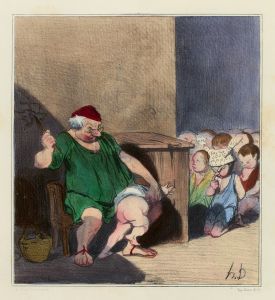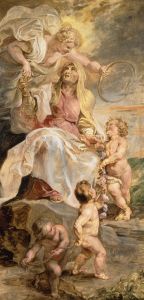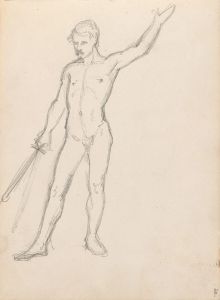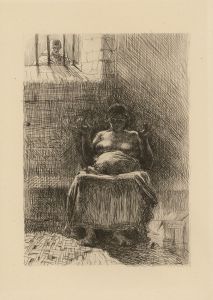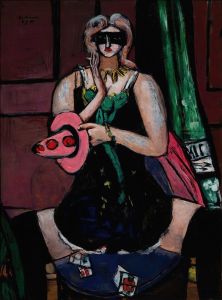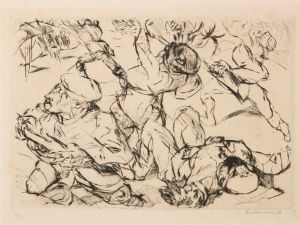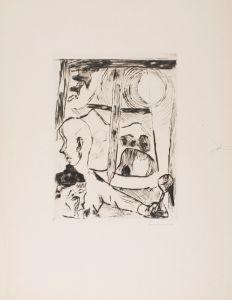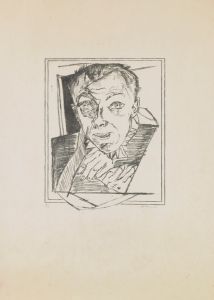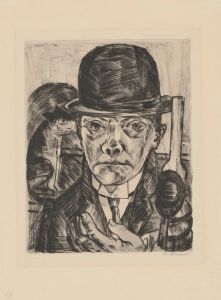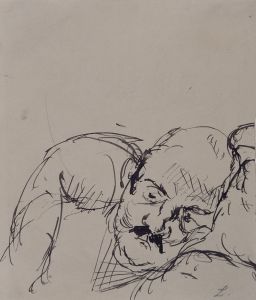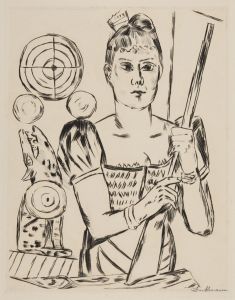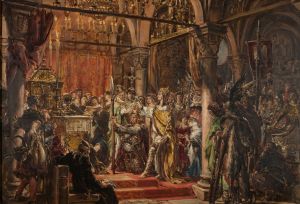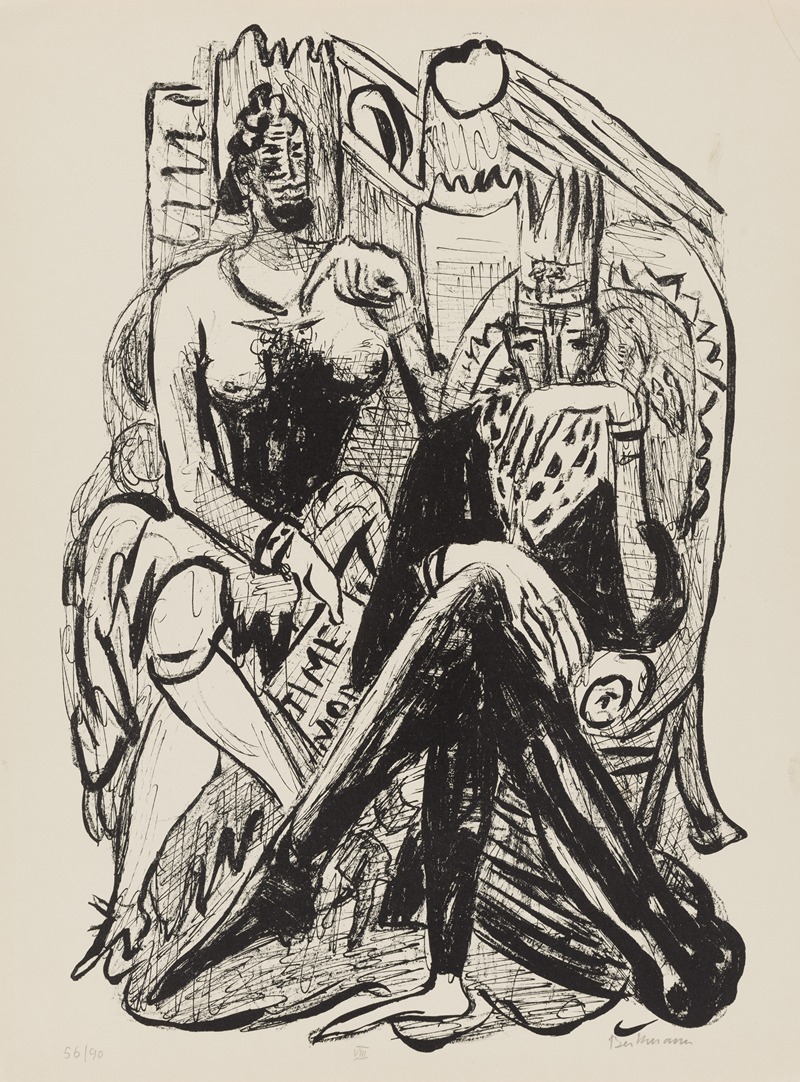
King and Demagogue
A hand-painted replica of Max Beckmann’s masterpiece King and Demagogue, meticulously crafted by professional artists to capture the true essence of the original. Each piece is created with museum-quality canvas and rare mineral pigments, carefully painted by experienced artists with delicate brushstrokes and rich, layered colors to perfectly recreate the texture of the original artwork. Unlike machine-printed reproductions, this hand-painted version brings the painting to life, infused with the artist’s emotions and skill in every stroke. Whether for personal collection or home decoration, it instantly elevates the artistic atmosphere of any space.
Max Beckmann's "King and Demagogue" is a significant work by the German painter, known for his contributions to the Expressionist movement and his unique style that often delved into the complexities of human nature and society. Beckmann, who lived through both World Wars, frequently infused his art with themes of power, politics, and the human condition, reflecting the tumultuous times he experienced.
"King and Demagogue" was created during a period when Beckmann was deeply engaged with the political and social upheavals of his era. His works from this time often explore the dynamics of authority and manipulation, themes that are central to this painting. Beckmann's art is characterized by bold lines, vivid colors, and a sense of drama, all of which are evident in "King and Demagogue."
The painting itself is a powerful commentary on leadership and influence. Beckmann uses the figures of the king and the demagogue to symbolize different forms of power. The king, traditionally seen as a figure of legitimate authority, contrasts with the demagogue, who represents manipulation and the ability to sway public opinion through rhetoric and charisma. This dichotomy reflects Beckmann's interest in the moral and ethical dimensions of power, as well as the potential for corruption and abuse.
Beckmann's style in "King and Demagogue" is marked by his typical use of strong, expressive lines and a rich, often somber palette. His figures are rendered with a sense of weight and presence, conveying the gravity of the themes he explores. The composition is likely to be complex, with a focus on the interaction between the two central figures, inviting viewers to consider the nature of their relationship and the broader implications for society.
Throughout his career, Beckmann was known for his ability to capture the psychological depth of his subjects, and "King and Demagogue" is no exception. The painting invites viewers to reflect on the nature of power and the ways in which it can be wielded for both good and ill. Beckmann's work often challenges viewers to consider their own positions within the social and political structures of their time.
"King and Demagogue" is a testament to Beckmann's skill as an artist and his keen insight into the human condition. It remains a relevant and thought-provoking piece, offering a window into the complexities of leadership and influence. As with many of Beckmann's works, it encourages a deeper understanding of the forces that shape our world and the roles we play within it.







